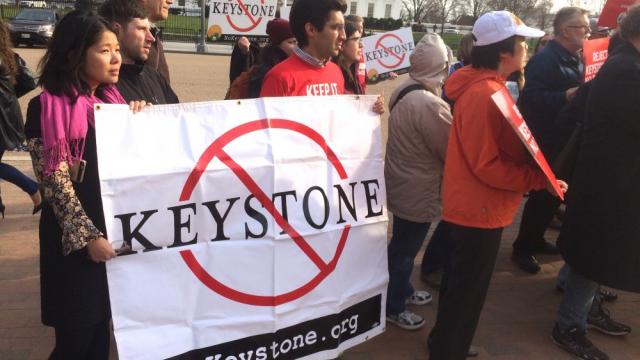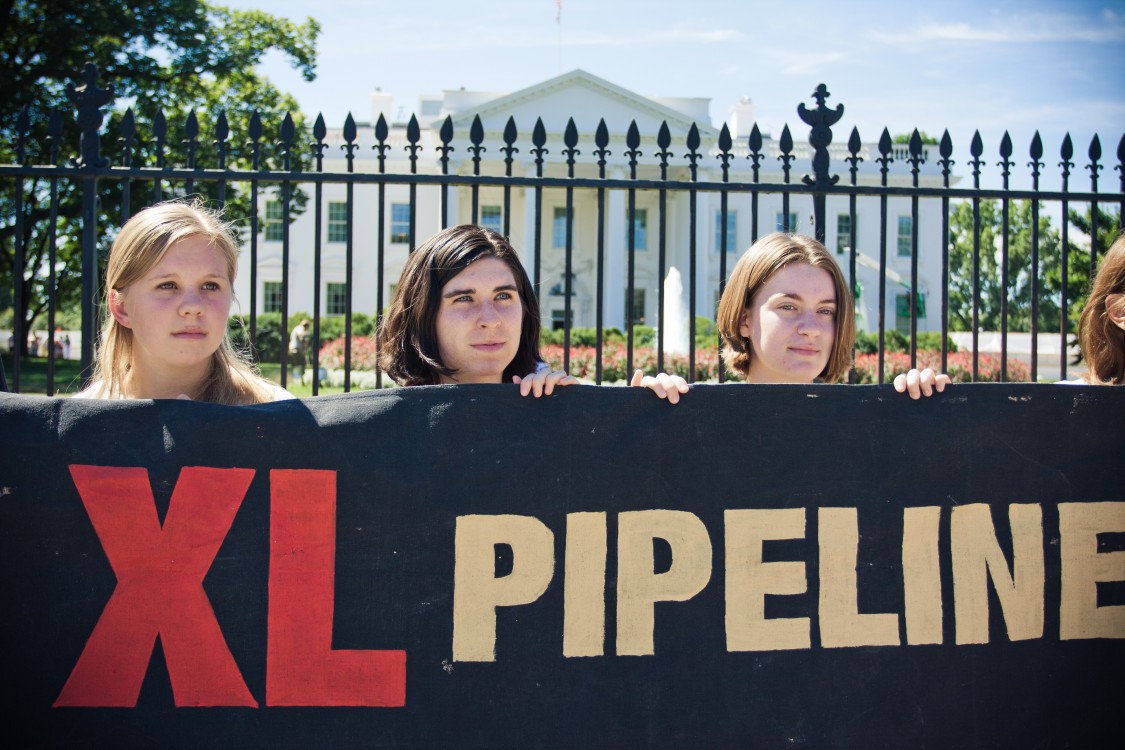
Environmental groups rallied at the White House Friday afternoon in a new commitment to do whatever it takes to stop the Keystone XL pipeline. The call to action came as the Trump administration issued permission to restart the pipeline, a project which was considered defeated in November 2015, when Obama rejected final approval of the State Department permits.
The project was previously the focus of an epic six-year battle between TransCanada Corporation and hundreds of environmental groups, between 2010-2015, which grew out of grassroots organizing and into a major environmental movement. The battle was waged with a broad range of groups, including Indigenous people, students, clergy, green groups and involved legal challenges.
Several hundred joined organizers at the White House rally in a vow to challenge TransCanada, the pipeline builder, as well as the banks financing the project. Sierra Club, CCAN, Indigenous Environmental Network, and Divest DC were among groups that participated in the last afternoon rally.
Early Friday President Trump signed an approval to restart the Keystone XL, while TransCanada CEO Russell Girling, stood behind him in the Oval Office.
The southern leg of the 1379 mile pipeline is already completed. The northern part of the project is not finished yet built but if completed, it would transport Alberta Tar Sands from Canada, through Montana, South Dakota, and Nebraska, and join at a part of the pipeline in Nebraska, which has already been completed.
ThepProject has many hurdles to overcome, including permission requirements from the Nebraska Public Utilities Commission. It will take at least eight months for permits to be approved and will likely be challenged in a legal battle.
“This fight is not over,” said Lena Moffitt, Sierra Club Director, Dirty Fuels Campaign. “We absolutely cannot afford to expand our reliance on the dirtiest source of oil on the planet,” she said.
Moffitt decried the administration for resurrecting the fossil fuel project after the U.S. and 194 nations had committed to reducing their carbon footprint during the Paris Climate Conference (COP21) in December, 2015. Moffitt also chided the administration’s action as irresponsible when the planet had seen its three hottest years in recorded history.
Jeremiah Lowrey, and organizer with Chesapeake Climate Action Network, said that divestment strategies were a strong tool in the resistance against fossil fuel projects. “We’ve got to get our local elected officials in our cities and states to divest from banks financing the pipeline,” he said.
Lowrey said that all of of the above strategies of resistance were needed to defeat the Keystone XL pipeline and other fossil fuel projects harmful to the air land and water. “As Malcolm X said, ‘by any means necessary’ to ensure our safety,” he said.
He encouraged the public to join with any of the many green groups in the People's Climate March, which is scheduled for April 29.
3 WAYS TO SHOW YOUR SUPPORT
- Log in to post comments












